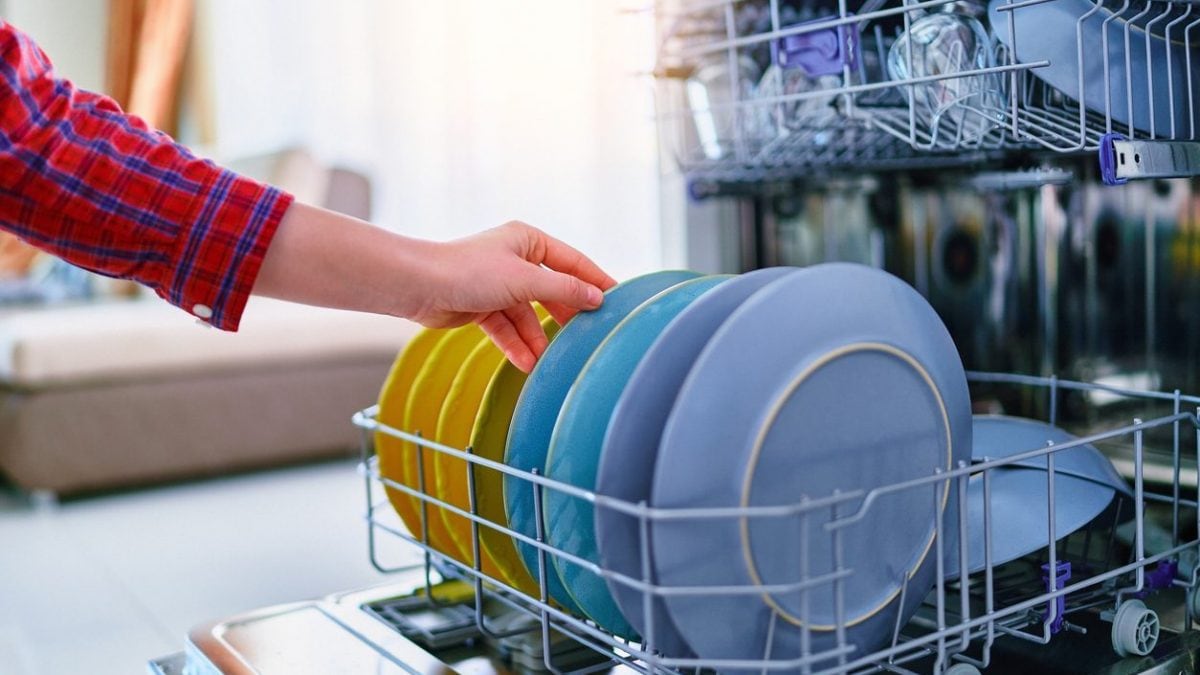
Of all the household appliances that have become part of our daily lives, the dishwasher is one of the most useful: Josephine Cochrane's ingenious invention, in fact, not only allows us to save time and effort, but can also be a great ally in saving a precious resource such as water.
As long as it is used correctly, however. If you make a mistake by inserting unsuitable materials, positioning the dishes in the baskets incorrectly, or choosing the right type of soap, the life and functionality of the dishwasher will be shortened.
We have created our little guide precisely for this reason, to suggest useful tips and tricks to make the most of your dishwasher, guaranteeing not only a long survival of the appliance, but also concrete savings in terms of water and energy consumption, avoiding unnecessary waste.
1. Remove Residues by Hand (And With Paper), But Only if There Are a Lot of Them
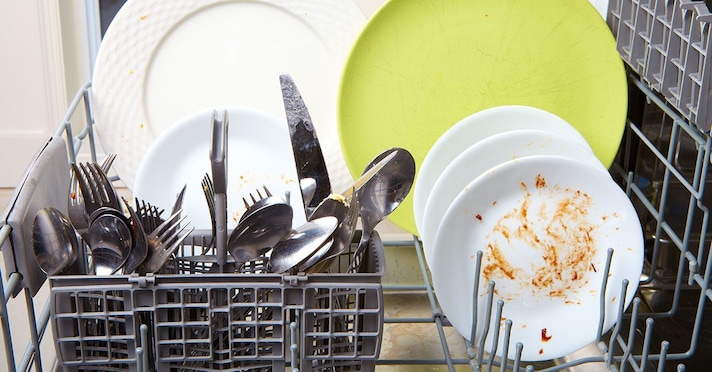
Let's immediately dispel the first, biggest myth related to the use of the washing machine: pre-washing everything by hand believing that it makes the appliance's job easier. In reality, it is a bad habit, which risks being harmful especially in terms of savings. In fact, letting plates and dishes do a lap in the sink is a waste not only of energy, but also of water, electricity and detergent. Furthermore, the dishwasher works more effectively when the dishes are very dirty. The only action you can do, if necessary, is to remove food residues with the help of a piece of paper.
2. Use The Right Detergents in The Right Dose
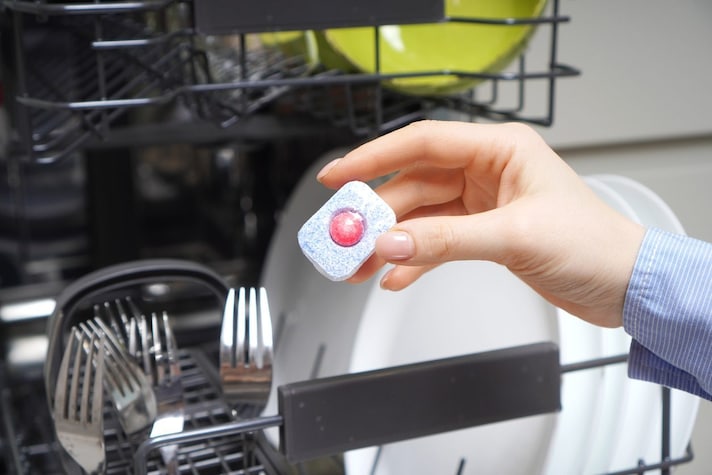
Choosing the right type of detergent is important to get the most out of your dishwasher and to prevent it from breaking down too quickly. Remember not to use hand dishwashing detergent in the dishwasher, because it is not suitable: the dishwasher needs a specific product. Today the most common type of soap is the tablet type, ready to use and single dose: compared to liquid or powder detergents, these products have a simpler dosage and also a greater cleaning power. Also carefully follow the quantity of detergent to use as indicated on the package: the right dose for the right amount of detergent helps to fully exploit the potential of this appliance.
3. Place the Dishes Correctly
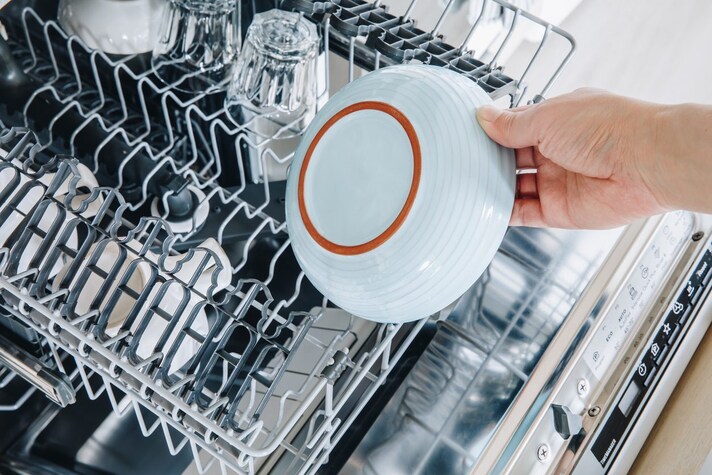
To get the best results in terms of washing you have to learn to arrange the dishes correctly: the shelves and the positioning, in fact, are not random. The upper shelf is usually lower, so it is where you put glasses, cups and bowls; everything should be placed upside down to avoid them filling up with water. The lower rack is usually larger: a good arrangement is to put plates and trays on the sides, the larger pots and pans in the center, and then the cutlery in the designated space. A good system is to use the dishwasher separators so that everything is separated and well fixed. The dishes, in fact, should never overlap with each other otherwise they will not clean well. Also remember to put the knives with the tip facing down, and to check that the bulkier dishes do not get in the way of the dishwasher arms.
4. Run it at Full Load (And Use The Right Program)
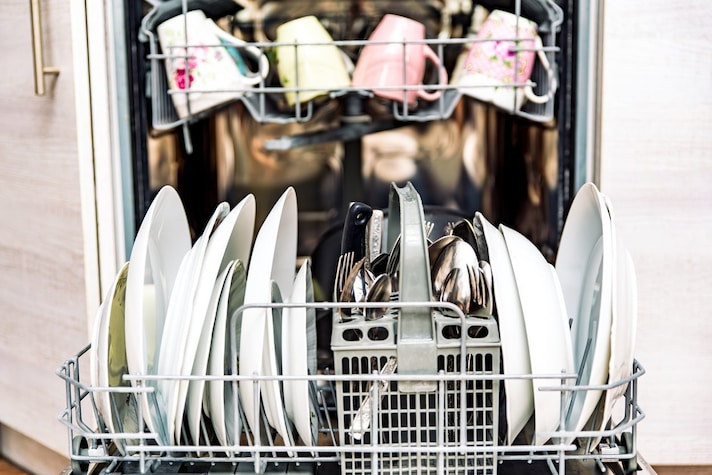
The main trick to use, especially in terms of saving, is to always start the dishwasher with a full load. If you start it full, and arrange the dishes correctly, you will not have to use it in multiple sessions and therefore you will save on the use of water and electricity. Also remember to study the programs available on your dishwasher: on average all appliances have three or four. In general, if the dishes are not seriously encrusted, it is fine to set an ecological and/or energy-saving wash: it uses less water and works at temperatures no higher than 120°F/50°C. It will be good for the environment and your wallet!
5. Avoid Inserting Some Materials
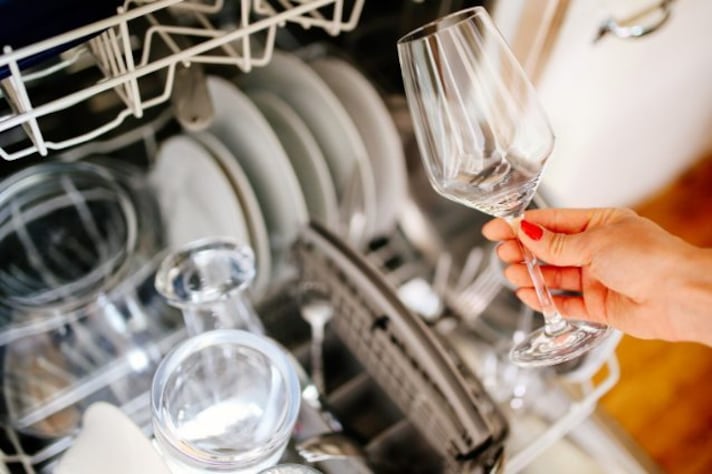
If you want to make your dishwasher last as long as possible, remember that not all materials are suitable for washing in it, because some may be too delicate and not able to withstand high temperatures. Putting them in would not only ruin the dishes, but could also damage the appliance. In general, it is better to wash hand-painted dishes, those with metal decorations, silver, aluminum, wood, cast iron, tin and blown glass dishes in the sink. For plastic, however, make sure it is the type that can withstand high temperatures, and if you are unsure, it is better to wash it by hand.
As for glasses, it is true that sometimes they can be stained, even after proper washing: there can be various reasons. First of all, water that is too hard, that is, rich in calcium and magnesium, can leave white deposits on glasses, making them opaque. If you have a water softener, make sure it works properly and that there is enough salt. You can also use specific anti-limescale products for dishwashers.
Too much detergent can leave residue on glasses, especially if it is not rinsed properly; at the same time, too little rinse aid can also be a problem: adjust the doses of these two products, following the instructions for your machine. Another reason could be represented by the low temperature wash, which cannot remove all food residues and stains. Finally, cleaning is essential for the machine to work at its best: clean your dishwasher regularly to be sure it is working well.
6. Don't Forget Cleaning and Maintenance
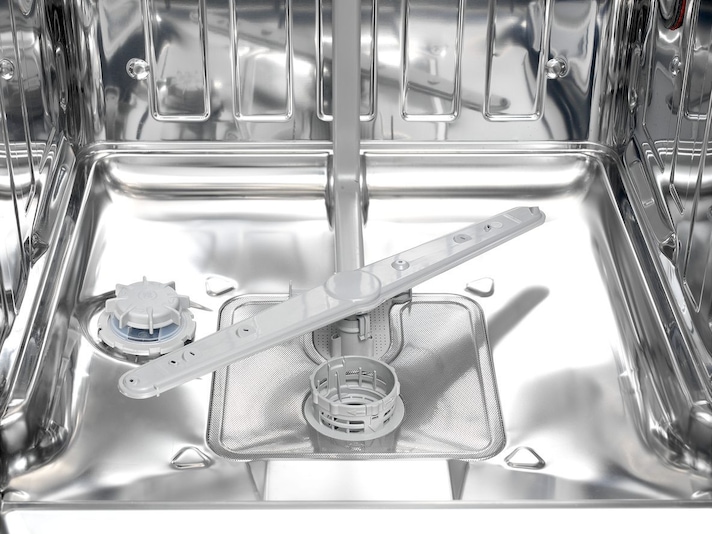
Regularly cleaning and maintaining your dishwasher is essential to keep it in good condition: a well-maintained appliance, in fact, is more functional and helps you reduce waste. At least once a week you should check the condition of the filter, and unless it is in serious condition it is a good idea to clean it once a month with a simple natural method: leave it to soak in boiling water and vinegar. It is also a good idea to check the baskets and rotating arms often, to remove any dirt and food residue and avoid the formation of bad smells.
7. Don't Believe False Myths

A simple search on the internet is enough to realize that there are many beliefs and myths rooted in the collective imagination regarding tricks and tips for using the dishwasher. It is essential to inform yourself and learn to recognize those that are hoaxes, if not harmful habits that can ruin your appliance. We debunk some for you: no, washing dishes by hand is not more effective, the dishwasher cleans and disinfects at very high levels thanks to the high temperatures reached during the process. And no, it is not good to use vinegar instead of rinse aid: it is an acid, and in the long term it could cause damage to both the appliance and the dishes.
;Resize,width=767;)
